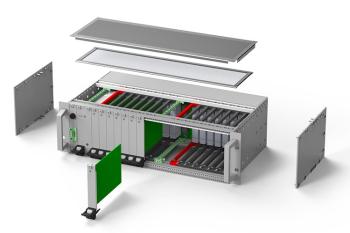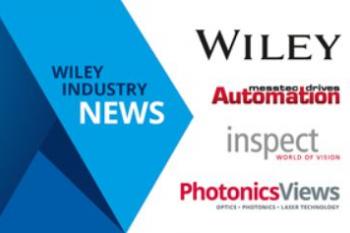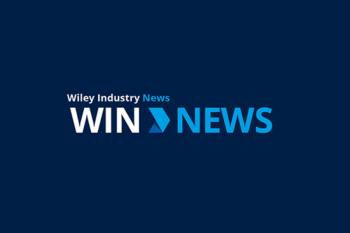“The Political Upheavals with China are Pushing our Business”
18.04.2023 - Interview with Simon Smith, European Director of Aerotech
The flexibility to respond to customers combined with robust supply chains and diversified markets. This positions Aerotech well for the future, Simon Smith, Aerotech‘s European director, is certain. Therefore, the political disagreements between the U.S. and China cannot shock him. On the contrary, he is seeing great opportunities for his own company, but also for Europe as a whole.
inspect: The previously pure sales office in Fürth was expanded into an assembly plant this year. What is the background to this?
Simon Smith: To take a step back: First of all, Aerotech has always offered solutions instead of electromechanical systems. So, sales is always about understanding what‘s important to the customer. And one of the things we have learned over the last few years is that it is very good to be flexible and to be able to produce in different locations. That has to do with personnel, with the availability of resources, and with the fact that you have large chunks of stone – we‘re talking about granite here – that you don‘t want to transport around the world.
The assembly plant in Fürth gives us more flexibility on site. For example, if they want to deliver a 3-meter-long axle, it is very difficult to transport it by plane, especially if there is a big chunk of stone attached to it. And by ship, it is just very slow.
inspect: Can you explain in a little more detail what is produced in Fürth?
Smith: When we have systems that have large pieces of granite attached to them, the Fürth plant gives us the flexibility to either manufacture in the U.S. or source the granite locally in Germany or other European areas and assemble them in Fürth. One of the first things we are looking at now is to expand the machinery on site. The reason for this is that we have some large customers in Europe who want flexibility: for example, they often don‘t know initially whether they want a turned part on top or not. We want to be able to react to this more quickly on site.
Apart from that, Fürth is about getting in touch with customers on site. One example: If a customer from Germany buys a large system, he may want to look at and check the system before he accepts it. A trip to the USA is much more expensive for him than a trip to Fürth.
inspect: So Fürth is a center in Europe, so to speak, right?
Smith: That‘s right, yes. It‘s not that we don‘t want to do it elsewhere, but there are not enough
resources everywhere. We chose Germany because the people there have a lot of expertise. And besides, we also have the material there that we need for this task. Last but not least, Germany is known in Europe as an industrial location that offers high-quality solutions.
inspect: Which countries do you mainly export to within Europe?
Smith: We have two main offices, one in the UK and one in Fürth. The office in the UK looks after Scandinavia, the Baltic states, France and southern Europe, as well as the Middle East. Fürth serves the rest of Europe, which is essentially Eastern Europe as well as German-speaking Switzerland and Austria.
inspect: You mentioned Great Britain. That inevitably leads to a Brexit question: how will that affect your business?
Smith: If you were to ask me if I would have voted for Brexit, the answer would have been no. Simply because it‘s always better to have a common market to operate in.
Of course, Brexit also gives us flexibility as a country. But it makes life very difficult for us in terms of exports and imports. Also, we now have a barrier between us and the plant there in Germany: in addition to the customs duties we have to pay when the goods come to the UK, there are all the customs clearances you have to go through. Overall, there‘s just more bureaucracy and it costs more money now to do business across national borders. But there are already rumors in the United Kingdom that they could become part of Europe again.
inspect: How has Aerotech weathered the pandemic?
Smith: I think we‘ve weathered the pandemic very well. We learned to innovate our business methods and function as a hybrid company: Many employees are continuing to work from home and do their jobs in online meetings, including sales calls.
I think we‘ve also become more productive as a result. Still, there‘s nothing like a face-to-face meeting, a real encounter with the customer. And we‘re starting to do that more often again now.
That said, we did actually see a drop in immediate business during the pandemic. But that has more than recovered.
inspect: So, is Aerotech prepared for the next pandemic?
Smith: Absolutely, we‘re better prepared for it than we were last time. I think we‘ve all learned a lot, and I think we can work from home in administration, for example. When that happened the first time, we weren‘t prepared for that. Now we have the hardware to do it. We have the appropriate solutions and some of the necessary procedures in place: Logging work, ensuring employee health, wearing masks, and so on.
inspect: What have Aerotech‘s biggest successes been recently?
Smith: It was a difficult time during the pandemic, but one thing I can say is that Aerotech has continued to invest in the future. For example, we launched a new control platform, Automation 1. We‘ve been busy now for a long time transitioning customers from our existing control platforms to the new one, and I think that‘s been a big success that we‘ve had.
In terms of the business, we have record order volumes, we‘ve upgraded technologically, we‘ve bought a new factory, we‘ve moved into the factory, we‘ve doubled our manufacturing space in the U.S., we‘ve expanded and trained the team.... So, I think we‘ve become a better company and we can offer more flexibility to our customers. And best of all, we have a smarter supply chain now.
inspect: What is China‘s role right now, and what is the outlook?
Smith: Aerotech has an office in China. But our entire manufacturing takes place in Pittsburgh. We also do half of our sales in the United States. So, dislocations with China don‘t have a direct impact on us. But I think one of the areas where China hits us is in semiconductor manufacturing. So, we‘ve had difficulty getting certain components for our devices. FPGAs and things like that. That‘s been a big problem in some cases.
But I think the bigger problem in this context is that the U.S. is no longer supplying certain semiconductor products to China. That has an impact on our markets in China and the rest of Asia.
But as far as the European markets are concerned, it doesn‘t have an impact at the moment and I would even say that it actually helps us more in Europe because we bring back production equipment from China to produce locally. It also actually pushes our business because there are new factories being built in the U.S. and each of those factories needs equipment that our customers supply.
inspect: What are the most important regions for Aerotech besides North America?
Smith: Europe and Asia share the other half of our business. That‘s why we are very balanced as a company. Another important factor is that we operate in several market segments. Some industries are just always going up, and a few others are always going down.
For example, we see that the semiconductor industry is cooling down a bit at the moment but other markets are picking up again: Optics, manufacturing and photonics. In the latter, there‘s a big effort right now to move from electrons to photons for processing units, and there‘s a lot of work being done on quantum computers and things like that that we‘re involved in.
inspect: What will Aerotech‘s next innovations be?
Smith: I don‘t want to get too specific about it, but I would say that the market is definitely heading toward what we‘re doing today. So, people want to produce things faster, and at the same time with higher precision. That hits at the core of what Aerotech does. We‘re investing in the future of new technologies to make sure we can take the next step. Whether it is in manufacturing technology or control technology. But when you put all those areas together, we are well positioned, and we have research and development programs that will support that. So, it is hard to say where the journey is going. Because we‘re already talking about being able to position much more precisely than others can measure right now.
Author
David Löh
Editor in chief of inspect






